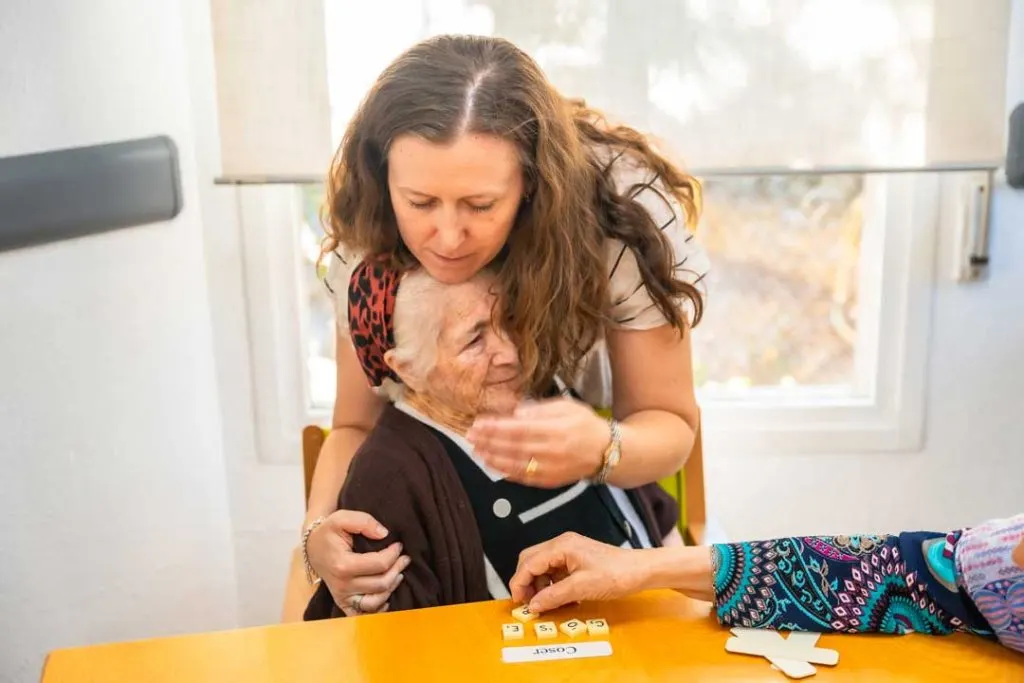How does frontotemporal dementia affect vision? Many assume dementia only impacts memory, but it can also disrupt eye function, perception, and focus. Understanding these changes can help caregivers provide better support.

Dementia not only impacts memory and cognitive health but also has effects on vision. Frontotemporal dementia (FTD) is a specific type of dementia that can lead to vision problems due to its influence on the brain’s frontal and temporal lobes. While FTD may not directly impair vision, unhealthy lifestyle choices and severe health conditions can worsen its effects, affecting a person’s eyesight.
In this post, we will explore what FTD is, how it impacts vision, and how to provide care for individuals affected by it.
What is Frontotemporal Dementia?
A group of diseases that causes the frontal and temporal lobes of the brain to deteriorate is referred to as Frontotemporal dementia eyes.

With the deterioration of these regions of the brain, the patient loses the abilities controlled by these areas, leading to changes in behavior, communication, and vision.
It is a progressive disease and mostly hits people in their 50s or 60s. While some patients show changes in their personalities and may become impulsive, others may lose the ability to communicate properly. In addition to this, deterioration in the eyes can also be an early indicator of dementia, as the neurodegeneration caused by this disease greatly impacts eye function.
How Does Frontotemporal Dementia Affect Vision?
You may be thinking about how can dementia affect eyesight. Frontotemporal dementia affects the regions of the brain required for processing and interpreting visual input. These areas regulate eye movement and maintain focus, visual memory, and attention.

Damage to these regions caused by FTD leads to affected eye vision. Vision problems caused by FTD may vary for different people. Here are some ways FTD might affect the vision:
Impaired Eye Movement
It can affect how the brain signals control eye movement, making it hard for the patient to track moving things or objects. They find it challenging to shift the focus of their eyes from one object or place to another.
Distorted Visual Perception
Frontotemporal dementia eyes change the way people perceive visual information. It might become difficult for patients to recognize objects, which may lead to issues in spatial awareness.
Loss of Visual Memory
The person suffering from FTD may not remember visual details. They might not recall what they saw or recognize places they have visited or people they know.
Decreased Visual Focus
Attention to visual tasks also becomes difficult with FTD. People may not focus while reading, writing, or watching TV. They may even have a hard time recognizing things around them.
Increased Light Sensitivity
Some people may be sensitive to light, feel irritated, and do not see things clearly in bright lights.
Why do Frontotemporal Dementia Eyes Look Different?
While FTD does not affect the physical structure of the eyes, there can be differences in how the person looks at things. Some people may show signs like a vacant expression, staring blankly at the wall or nothing
. Patients may also avoid eye contact with others because of visual processing and recognition issues.

FTD can also lead to disoriented vision, causing the person to not respond to visual stimuli. Due to affected visual perception, the patient may have trouble reading or noticing objects around them. These issues can be reflected in their eye movements or facial expressions.
Visual Challenges in Frontotemporal Dementia
People with FTD may experience varied challenges depending on the extent of their illness. Here are some of the common challenges faced by frontotemporal dementia eyes patients.

Challenges with Daily Activities
The person may have difficulty in watching TV, locating items, or reading. They may have to pay close attention to performing these activities.
Avoidance of Eye Contact
They may avoid looking directly at others and have trouble with visual processing.
Navigation Difficulties
Due to affected vision, they might not be able to move around their house and recognize familiar places.
Behavioral Changes
As they struggle with poor vision, they may show changes in behavior, such as feeling confused or frustrated.
How Can Caregivers Help?

Caregivers and family members can help the patient deal with dementia and eyes illness in the following ways.
- Provide the person with a safe and easy environment by eliminating clutter and clearing pathways.
- Take them for frequent eye examinations to trace out any defects and treat them accordingly.
- Try to engage them in visual stimulation activities to give them enjoyment through vision. This can be done through games that involve visual skills.
- Provide emotional support so that they can open up about their experiences and challenges.
- Engaging them in support groups can be helpful to share experiences with people facing similar challenges.
Vision Problems in Frontotemporal Dementia
While frontotemporal dementia may not be cured or reversed, implementing suitable care plans can significantly assist individuals in managing the condition. Regular eye examinations can help prevent vision-related complications in people with dementia.
If your loved one is experiencing frontotemporal dementia and eyes challenges, it is essential to understand the difficulties they face and support them in coping with the illness.
Understanding how frontotemporal dementia affects vision allows caregivers to create safer environments and offer the right support. While FTD cannot be reversed, regular eye exams, visual stimulation activities, and adaptive strategies can enhance quality of life.
If your loved one is struggling with visual perception, eye movement, or focus, work with specialists to manage these challenges. With proper care, emotional support, and tailored interventions, individuals with frontotemporal dementia and vision issues can navigate daily life more comfortably.

Jessi is the creative mind behind The Coffee Mom, a popular blog that combines parenting advice, travel tips, and a love for all things Disney. As a trusted Disney influencer and passionate storyteller, Jessi’s authentic insights and relatable content resonate with readers worldwide.
